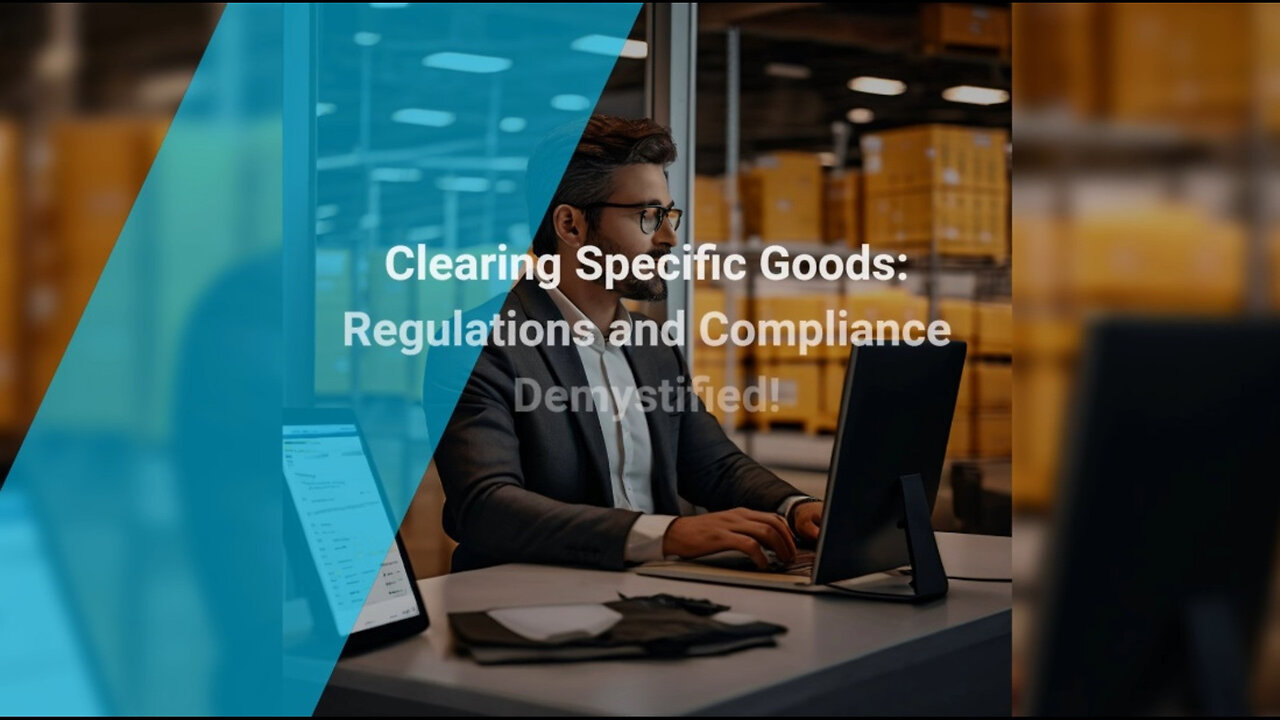Premium Only Content

Navigating Customs: Key Regulations for Specific Goods Clearance
ISF Checklist || 805-970-7918 || contact@isfchecklist.com || www.isfchecklist.com
In today's video, we discussed the regulations for specific goods during the customs clearance process. We started by understanding the importance of customs bonds, which serve as guarantees for the payment of taxes, duties, and fees associated with the goods. These bonds act as security measures for customs authorities to ensure compliance with regulations.
Next, we discussed the Risk-Based Importer Security Filing (ISF), which is an electronic submission providing important information about the shipment to customs authorities before the goods arrive in the country. The ISF includes details such as shipper and consignee information, container stuffing location, and item descriptions.
We then touched on the Harmonized System (HS) codes, which are internationally recognized codes used to classify goods. These codes determine the tariff rate and regulatory requirements for each product. It is crucial to correctly classify goods under the appropriate HS code during the clearance process.
Moving on, we highlighted that specific goods may have additional regulations imposed by customs authorities. For example, agricultural products may require documentation and inspections to comply with phytosanitary regulations, while pharmaceuticals or hazardous chemicals may have strict importation and storage requirements. Customs brokers play a vital role in ensuring compliance with these regulations.
Lastly, we mentioned the documentation requirements involved in the clearance process for specific goods. This may include commercial invoices, packing lists, certificates of origin, permits, and licenses. Customs brokers work closely with importers to ensure that all required documents are accurately prepared and submitted to customs authorities for clearance.
By understanding and effectively managing these complexities, customs brokers can help importers streamline their operations, avoid delays, and prevent penalties. Our role in customs brokerage is crucial in ensuring that goods are cleared smoothly and in compliance with all necessary regulations.
Thank you for joining us today, and don't forget to subscribe to our channel for more informative videos on customs brokerage and international trade. Stay tuned for our next episode.
#usimportbond
#isfcustomsbroker
#uscustomsclearing
#isfentry
Video Disclaimer Here: This video is purely educational and has no ties with the US government.
0:25 - Customs Bond Requirements Customs bond serves as a guarantee for payment of taxes, duties, and fees. It ensures compliance with regulations during the clearance process.
0:50 - Risk-Based Importer Security Filing (ISF) ISF is an electronic submission providing key shipment details to CBP before goods arrive. Includes shipper and consignee information, container details, and item descriptions.
1:20 - Harmonized System (HS) Codes Internationally recognized classification system for goods.
Determines tariff rates and regulatory requirements during clearance.
1:45 - Product-Specific Regulations Different goods have specific customs regulations. Examples include agricultural products, pharmaceuticals, and hazardous chemicals.
2:14 - Documentation Requirements Necessary documents for clearance include invoices, packing lists, certificates, permits, and licenses. Customs brokers assist in preparing and submitting accurate documentation for clearance.
-
 19:56
19:56
inspirePlay
1 day agoWalking with Lions & Facing Africa’s Wild Side | Safari Adventure with the Grid Championship Crew!
7 -
 10:50
10:50
RTT: Guns & Gear
1 day agoBudget Friendly Carry 2011: EAA Girsan Brat 2311
2181 -
 3:49:06
3:49:06
Alex Zedra
13 hours agoLIVE! New Game | Nuclear Nightmare
87.1K11 -
 25:08
25:08
MYLUNCHBREAK CHANNEL PAGE
1 day agoUnder The Necropolis - Pt 2
254K61 -
 1:45:59
1:45:59
Spittin' Chiclets
1 day agoCanadian Chokejob - Game Notes Live From Chicago - 12.28.2024
251K12 -
 9:18
9:18
Space Ice
22 hours agoThe Guyver - Alien Bug Suits, Exploding Dragons, & Mark Hamill - Weirdest Movie Ever
59.8K25 -
 9:31
9:31
Silver Dragons
1 day agoSilver Has Failed - Can it Set the Record Next Year? THIS BANK SAYS YES!
1.44K2 -
 7:08
7:08
GBGunsRumble
16 hours agoGBGuns Range Report 28DEC24
206 -
 1:19
1:19
LimitlessAmbition
3 hours ago $0.01 earnedHow the Discipline of Self-Respect Will Change Your Life Forever
29 -
 12:46
12:46
RealReaper
2 days ago $8.99 earnedMufasa is a Soulless Cash Grab
88.5K9